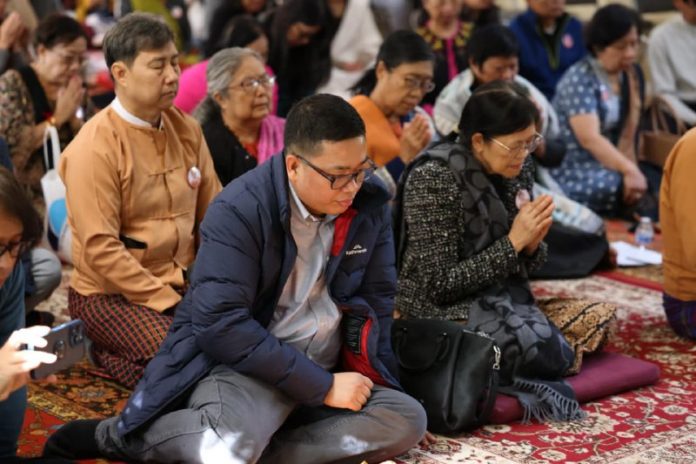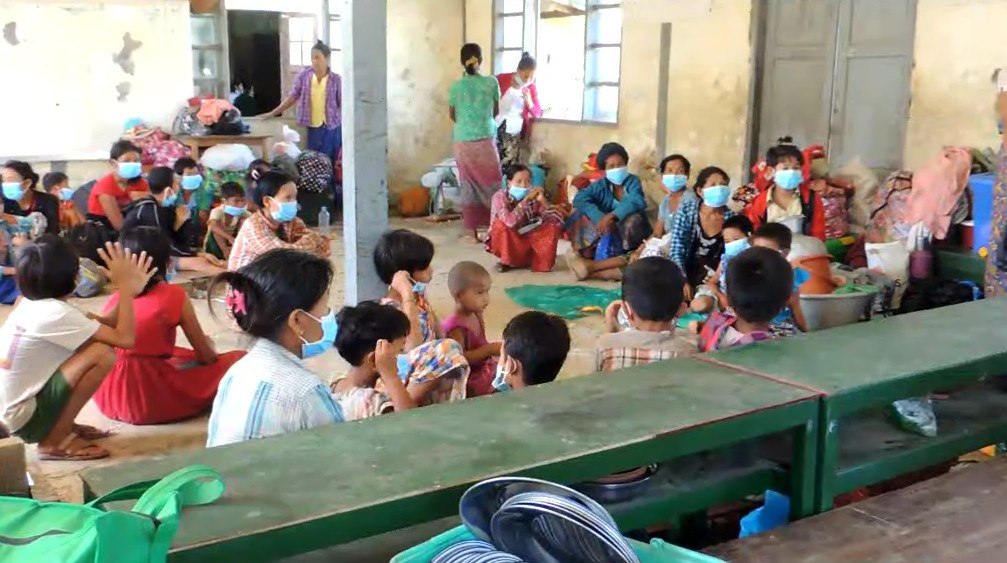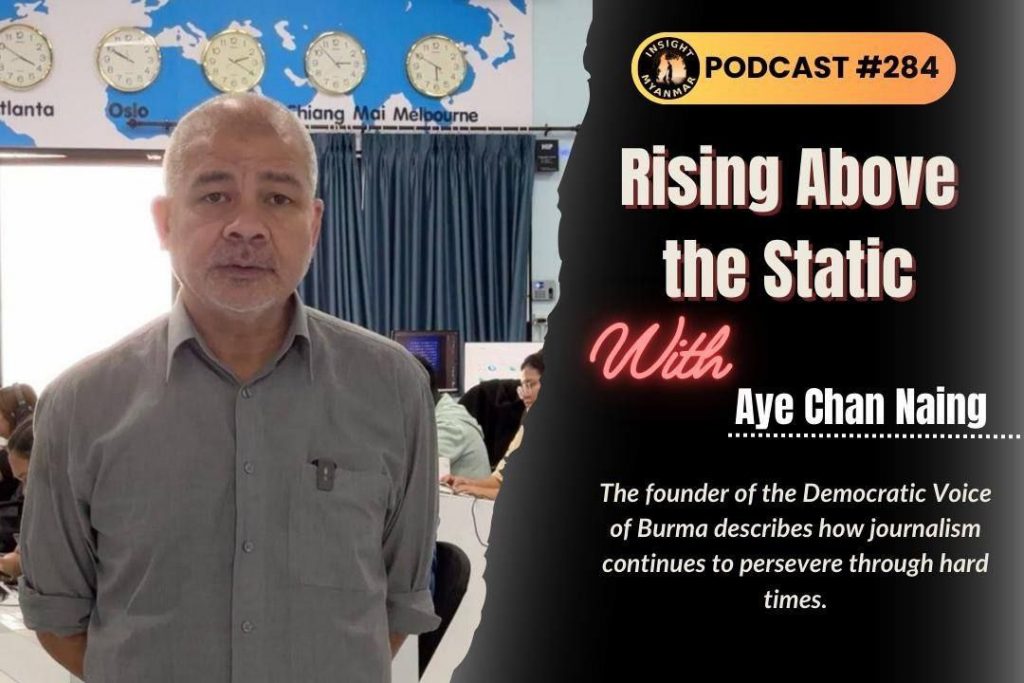The “Beyond borders – Exploring reporting and dialogue on forced migration in Asia” conference was organized by DW Akademie and held in Chiang Mai, Thailand Oct. 31 to Nov. 3. DW Akademie Program Director Andrea Marshall sat down with DVB Bureau Chief Mon Mon Myat in-studio to discuss what happened at the conference. Watch our DVB English News report.
Cyber scam centres offering false promises of high-paid jobs
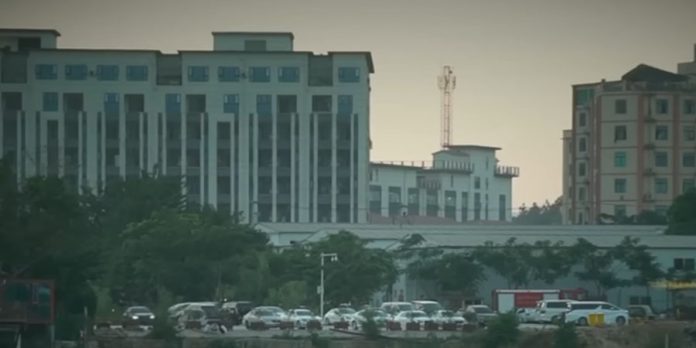
Sai Pan sat in his bus seat, passing through one military checkpoint after another, looking forward to starting his new job in Karen State. As the bus left an unpaved road and joined a smooth new one, he spotted the towering buildings of Shwe Kokko New City in Myawaddy Township rising in the distance.
As he drew closer, Sai Pan’s enthusiasm started to be replaced by apprehension. “I felt gloomy, as though I had stepped into China. Still, I had no other choice, so I went through with it,” he said, referring to the fact that most signs leading into Shwe Kokko are in Chinese.
Sai Pan, 25, is from Taunggyi, the capital of Shan State 413 miles (664 km) north of Myawaddy in Karen State. Before the 2021 military coup he had a stable business selling consumer goods online, but since mid-2023 his business has been in decline. When he was offered a job at Shwe Kokko promising a salary of 15,000 Thai Baht per month, he couldn’t turn it down.
“My business was struggling to make a profit. So, I decided to take the risk, hoping to earn more [money],” he said. Little did Sai Pan know, he would soon be working at a notorious cyber scam operation, called Zhapian in Burmese, inside Shwe Kokko.
When he arrived at the cyber scam operation he was surprised to meet well-educated Burmese people working there, including medical students, engineers, and computer science graduates.
When he realised that he had to scam people Sai Pan did not want to do the work, but he was trapped and had to work because he did not have enough money left to return home. “I deeply regretted coming to Shwe Kokko, but I didn’t even have enough money to return home. So, I had no choice but to keep going, even though I hated the job,” he said.
Sai Pan admitted that he was exhausted by constantly having to deceive innocent people and that the Chinese scam centre bosses exploit and unfairly treated the workers. He estimated that there are about 400 people working in each scam centre. They work in large enclosed halls with poor ventilation and face dismissal or pay cuts if they do not reach targets set for them by their bosses.
If Sai Pan wanted to leave and get another job the only ones available at Shwe Kokko are cyber scamming. So though Sai Pan could switch employment he could not change the type of work.
“I was constantly worried about being fired before getting paid. There was nowhere to complain if I was treated unfairly. In fact, even those who did complain were afraid of being arrested,” he added.
Shwe Kokko is a new city project jointly developed by Saw Chit Thu, the pro-military leader of the Karen State Border Guard Force (BGF/KNA) which rebranded itself as the Karen National Army, and the Hong Kong-registered Yatai International Holdings Group.
Before the 2021 coup, electricity for Shwe Kokko came from Thailand. However, over the last three years, Thai authorities have cut the electricity supply. Despite this, Shwe Kokko continues to operate, relying on generators and solar power.
Shwe Kokko has developed into Myanmar’s gambling and cyber scam hub. Its restricted and opaque environment makes it challenging for outsiders to gain access or leave.
This was an advantage for Khaing, another lured to Shwe Kokko with a high-paying job offer. She participated in the anti-coup Civil Disobedience Movement (CDM) when government employees refused to work under the military after the 2021 coup.
Khaing no longer had employment and was persecuted by the military for her actions. A job offer from Shwe Kokko seemed to offer the perfect escape. She could earn good money and stay in an area out of the reach of arrest and persecution.
“My family is constantly worried about my safety. At the same time, I’m the only one my household can rely on for income, and I can’t afford to go abroad for work. In the end, this was the path I chose,” she said.
When Khaing realised she would have to work scamming people she was disgusted but felt unable to escape. She estimated that in her workplace there were about 350 staff overseen by five Chinese-speaking security guards who keep a constant watch over all of them.
She said that each worker has a computer and between two to 10 mobile phones depending on the work assigned to them. They are constantly monitored from behind. Though she works on a computer, Khaing is forbidden from using it for personal browsing or anything not work-related.
“I’ve been here for quite a while, so I’m used to most situations, but I still get nervous every time I see someone else being pulled out in front of me for a mistake,” she said.
Everyday Khaing has to try to entrap strangers into a scam by sending them deceptive messages via WeChat and Telegram messaging apps. She often initiates contact by pretending that she has called or messaged the wrong person before entering into a conversation with them that will often end up with the victim being scammed.
“I have to admit that now, I’ve become quite skillful at fraud. They’ve already provided us with formats to carry out these scams. Since entering this business, no one has the chance to use their real skills or talents. They’ll spend all their time just deceiving others,” she added.
Khaing also admitted to feeling ashamed every time that her mother back home reminds her not to forget her religion. “I always feel ashamed hearing that. If I had the chance, I would like to do a decent job outside, one that gives me dignity. But no one understands my suffering better than I do. In these times of rising prices, it’s very hard for me to give up a well-paying job,” she said.
“As young people, we can’t afford to think about the future. We take these awful jobs with just one goal in mind: to make more money. Our dreams have long since faded,” said Sai Pan.
There has been a huge increase in the number of scam centres since the 2021 coup as the military and their allies are making a lot of money, which is vital as it struggles to obtain foreign currency.
Initially there were many scam centres on the border with China, but the Brotherhood Alliance drove many of the scam centres away from the Chinese border during Operation 1027, which began Oct. 27, 2023.
Many of the scam centre operators from the Myanmar-China border have relocated to the Myanmar-Thailand border, and are now under the protection of the Karen BGF/KNA. Though it issued an order telling all scam centre operators in areas such as Shwe Kokko, Wang Kha, and KK Park to leave Karen State by Sept. 30, the centres have continued operating.
There are still many job adverts luring workers to the scam centres in Shwe Kokko with job ads promising high salaries. Since 2022, foreigners have also been tricked and trafficked to work in Myanmar scam centres. They are subjected to forced labour, torture, and severe human rights abuses. This includes people from Laos, India, Indonesia, Thailand, and China.
On the surface, Shwe Kokko presents itself as a beautiful, sophisticated new city bustling with foreigners, especially Chinese. However, beneath this facade lies a much darker reality—a place where workers are treated as slaves and Myanmar’s youth sacrifice their dreams of a bright future, to be able to support their families.
Loy Krathong festival lights up sky over Chiang Mai
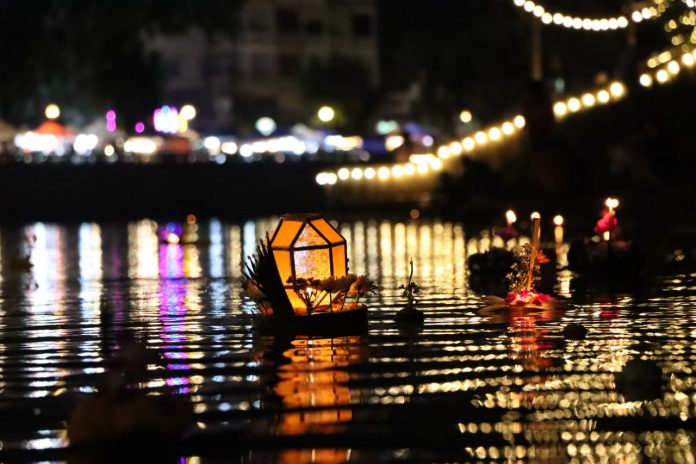
Thailand’s floating lantern festival Loy Krathong was held in Chiang Mai on Nov. 15-16. Loy means to float, and Krathong are small baskets made of banana leaves decorated with flowers, candles, and incense sticks. These offerings are made to the water goddess Pra Mae Khongkha. Loy Krathong coincides with the Lanna northern Thai festival of Yi Peng.
“Yi means two, and Peng means full moon in the Lanna language. The name ‘Yi Peng’ translates to ‘Full Moon of the Second Month.’ On the occasion of this full moon, we offer fire and listen to sermons. The Loy Krathong festival is a national event, while the Yi Peng festival is an ancient tradition of the former Lanna Kingdom in northern Thailand,” said Nuttapong Punjaburi, a lecturer at Chiang Mai University (CMU) Faculty of Education.
The Yi Peng: Lanna Light Festival 2024 was held at the Three Kings Monument in Chiang Mai Nov. 13-15. It celebrated northern Thailand’s Lanna culture. Participants released silk paper lanterns into the sky. Releasing these lanterns at night symbolizes letting go of past misfortunes and hoping for future prosperity.

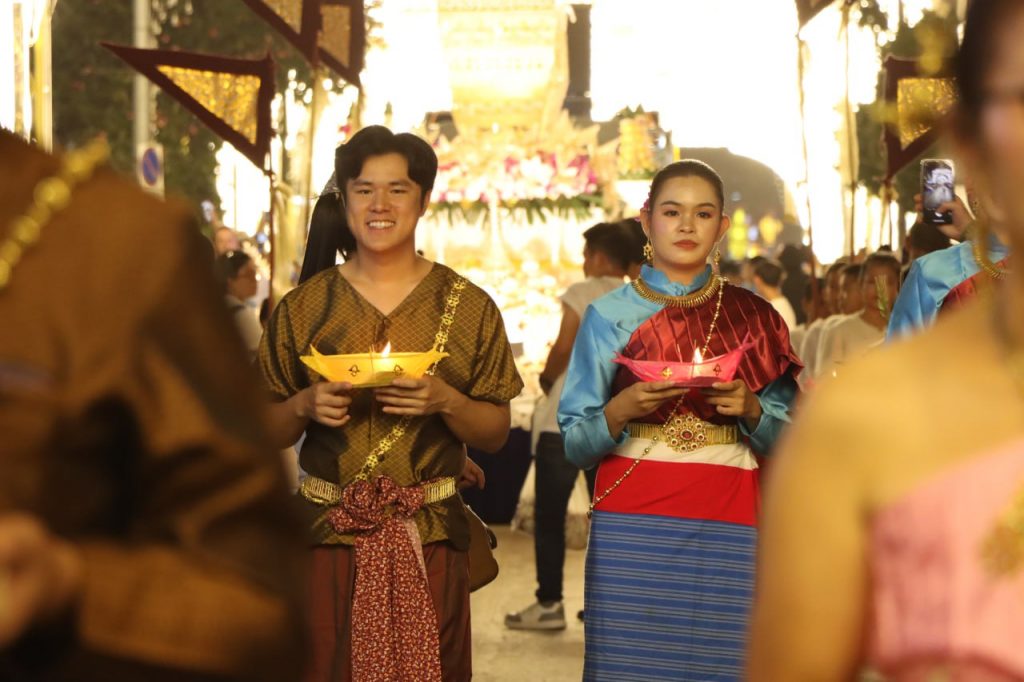
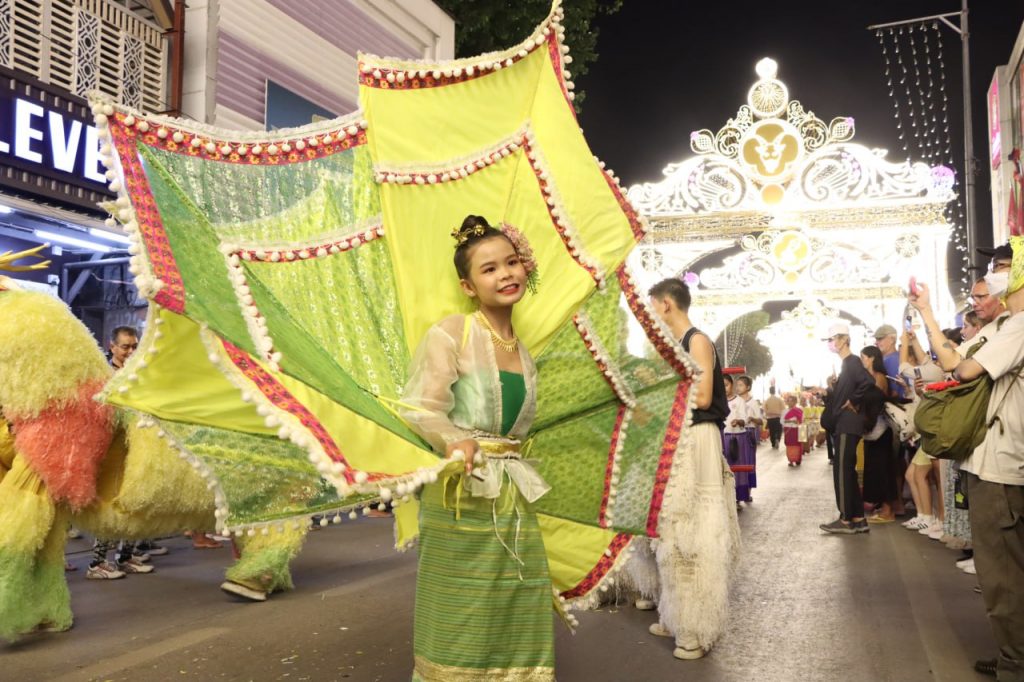
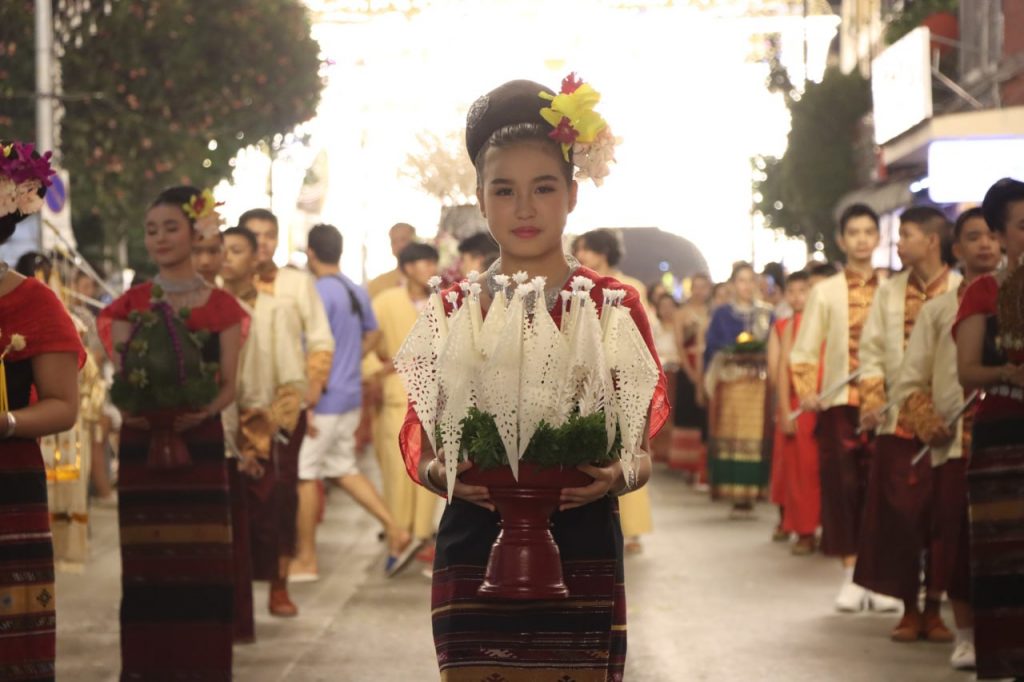
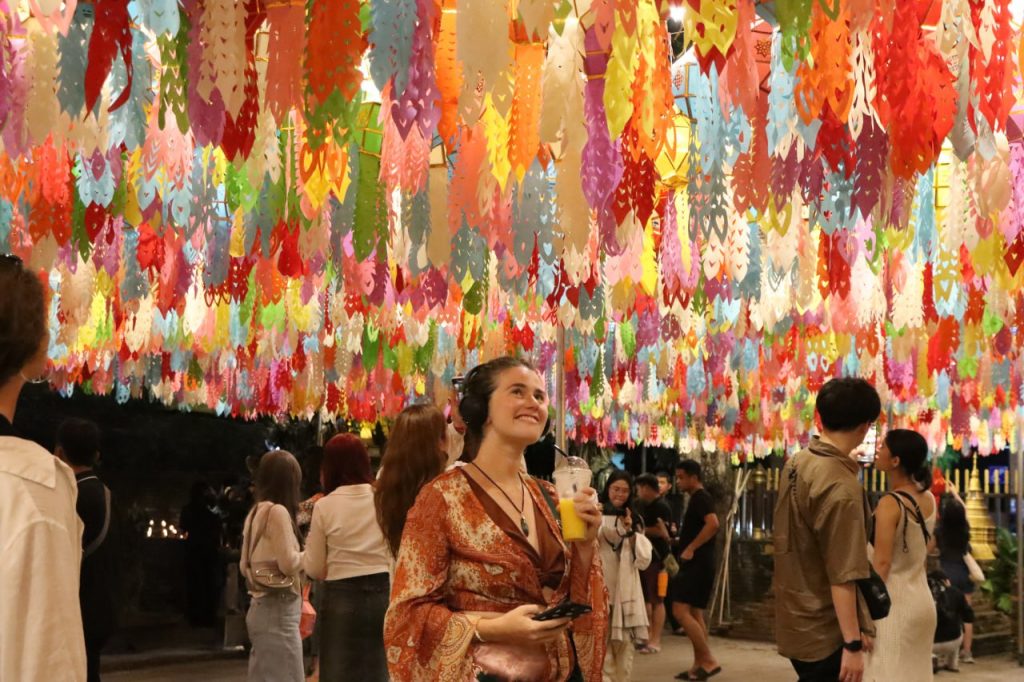
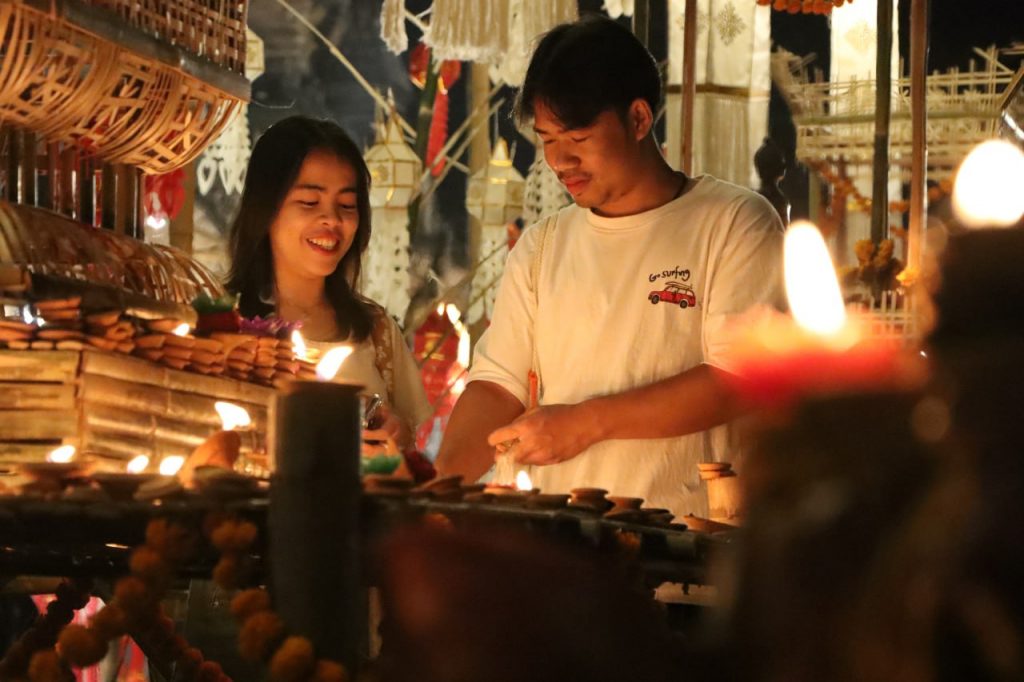
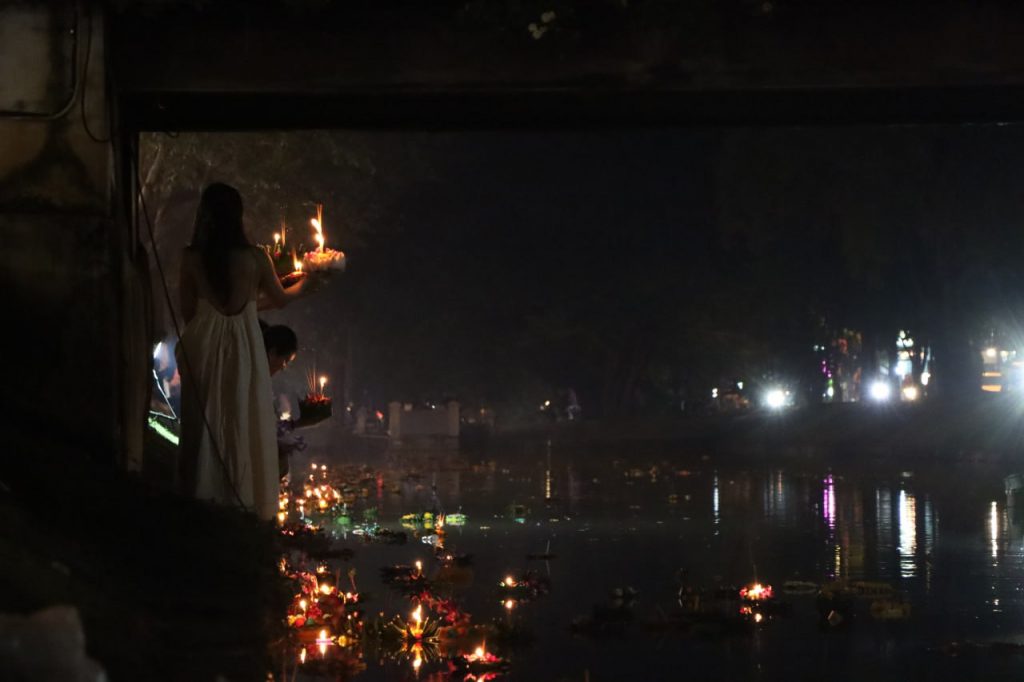
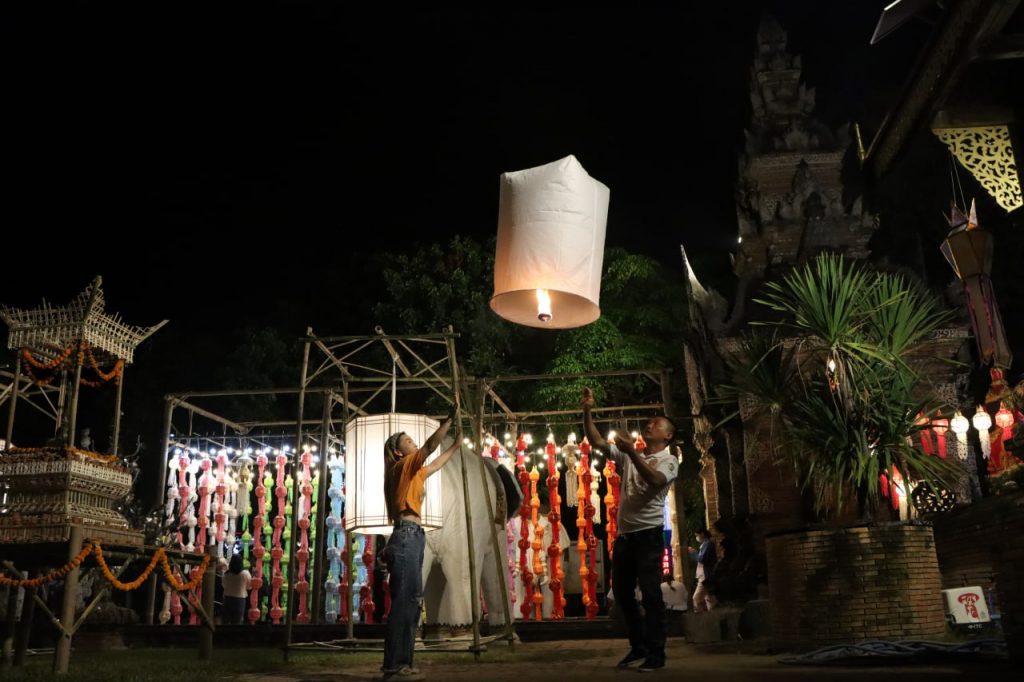
Min Aung Hlaing attends Tazaungdaing festival in Naypyidaw; A military cadets program in Myanmar?
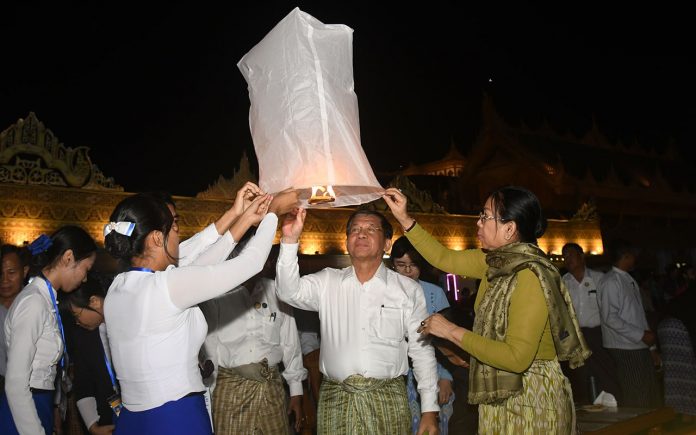
Min Aung Hlaing attends Tazaungdaing festival in Naypyidaw
Regime leader Min Aung Hlaing released a hot-air balloon at the Tazaungdaing Festival in Naypyidaw on Friday. It read: “Nothing is more important than human life” on the same day his Air Force killed eight civilians, including seven children, in Kone Law village of Momauk Township, located on the Myitkyina-Bhamo Road 87 miles (140 km) south of the Kachin State capital.
A delegation led by the head of Russia’s Republic of Buryatia Alexey Tsydenov attended Tazaungdaing as guests of the regime in Naypyidaw. “Both sides discussed topics ranging from investment, tourism and direct flights to deepening of people-to-people ties between Russia and Burma,” regime media reported. A hot-air balloon emblazoned with “Buryatia” was released to commemorate the visit.
Besides Naypyidaw, the regime hosted Tazaungdaing events in Yangon, Mandalay and Taunggyi Nov. 11-17. A fire at the Inle Princess Resort, located in the tourist hotspot of Inle Lake 24 miles (38 km) south of Shan State capital, was reportedly caused by a hot-air balloon which crashed and burned down several buildings inside the resort on Friday.
A military cadets program in Myanmar?
Legal experts have condemned the regime’s decision on Oct. 28 to incorporate the military conscription law into the high school curriculum in Burma. Naypyidaw now requires high school teachers to attend training on how to incorporate it and the Counter-Terrorism Law into their lessons.
“They will teach the Military Service Law and the Counter-Terrorism Law from their perspective. This is ideological indoctrination. These subjects are usually taught at university level. Secondly, it was not passed by parliament, nor approved by the Ministry of Education,” Kyi Myint, a senior legal expert, told DVB.
The regime announced the enforcement of its conscription law on Feb. 10. Under the law, men aged 18 to 35 and women aged 18 to 27 serve up to two years, while specialists like doctors aged up to 45 must serve for three years. The military claims it has recruited at least 21,000 conscripts this year so far. Regime spokesperson Zaw Min Tun said that the military aims to conscript at least 50,000 per year.

Loy Krathong festival lights up sky over Chiang Mai
Thailand’s floating lantern festival Loy Krathong was held in Chiang Mai on Nov. 15-16. Loy means to float, and Krathong are small baskets made of banana leaves decorated with flowers, candles, and incense sticks. These offerings are made to the water goddess Pra Mae Khongkha. Loy Krathong coincides with the Lanna northern Thai festival of Yi Peng.
“Yi means two, and Peng means full moon in the Lanna language. The name ‘Yi Peng’ translates to ‘Full Moon of the Second Month.’ On the occasion of this full moon, we offer fire and listen to sermons. The Loy Krathong festival is a national event, while the Yi Peng festival is an ancient tradition of the former Lanna Kingdom in northern Thailand,” said Nuttapong Punjaburi, a lecturer at Chiang Mai University (CMU) Faculty of Education.
The Yi Peng: Lanna Light Festival 2024 was held at the Three Kings Monument in Chiang Mai Nov. 13-15. It celebrated northern Thailand’s Lanna culture. Participants released silk paper lanterns into the sky. Releasing these lanterns at night symbolizes letting go of past misfortunes and hoping for future prosperity.
News by Region
MANDALAY—Residents of Madaya Township, located around 24 miles (39 km) north of Mandalay city, told DVB that airstrikes were carried out by the Air Force on at least four villages Sunday. Fighting between the military and the People’s Defense Force (PDF) has been ongoing in Madaya since Saturday.
“We saw a fighter jet and a helicopter open fire onto the villages from afar. We don’t know exactly how much damage [was caused],” a Madaya resident told DVB. An unknown number of Madaya residents had already fled their homes due to fighting since last month. Read more here.
SAGAING—Resistance forces, including the Burma National Revolutionary Army (BNRA), retreated from Pale Township due to retaliatory airstrikes carried out by the Air Force and 100 pro-regime troops being deployed to the town on Thursday. Pale is located around 35 miles (56 km) southwest of the Sagaing Region capital Monywa.
“All resistance groups are now withdrawing their forces around the town,” said a BRNA spokesperson. More than 20,000 Pale residents have been displaced from their homes due to the fighting between BRNA-led forces and the military. At least three civilians have been killed by airstrikes in Pale since Nov. 11.
YANGON—A resistance group calling itself Dark Shadow stated that it detonated a small explosive at actor Yan Aung’s residence in Yankin Township on Nov. 14. It claimed that the attack was intended as a “warning” after he was seen greeting Min Aung Hlaing in Naypyidaw after the regime leader returned from a visit to China.
“We no longer view him as an artist after he shook hands with [the regime leader],” a spokesperson of the group told DVB. Yan Aung played a Kachin elder in the military propaganda film “The Red Blanket.” It was released in cinemas nationwide in March 2023. He has regularly attended regime-sponsored events since the 2021 military coup.
(Exchange rate: $1 USD = 4,520 kyat)
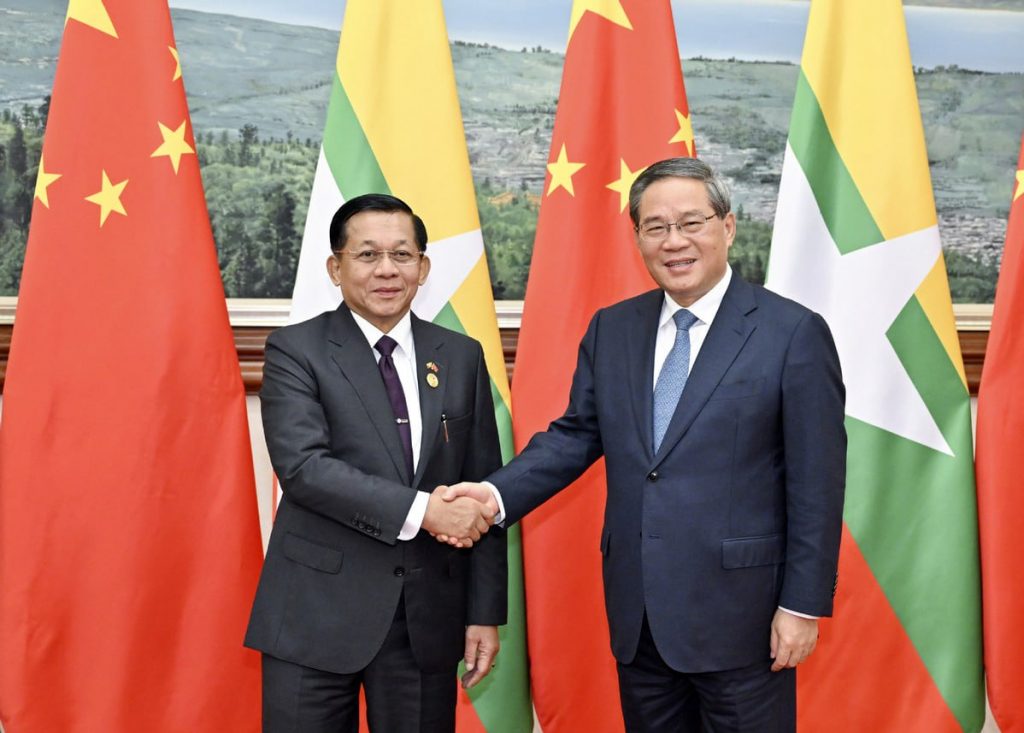
Read: China’s ever-changing approach to Myanmar by Myo Yan Naung Thein. Find DVB English News on X, FB, Instagram, Threads & TikTok. Subscribe to us on YouTube.
Airstrikes carried out on Madaya Township of Mandalay Region
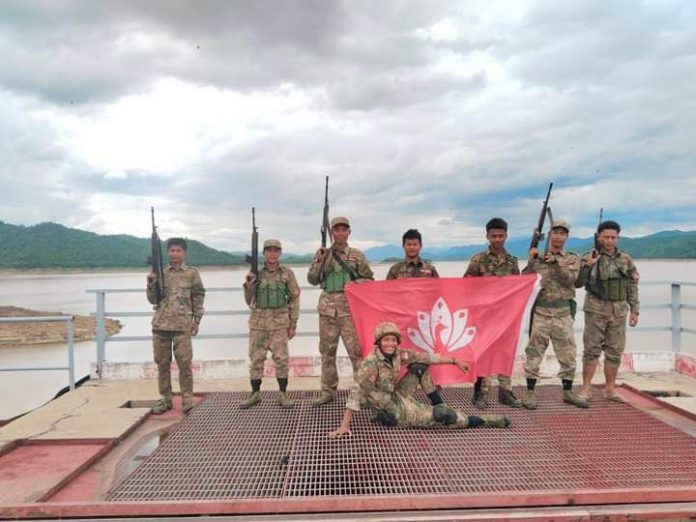
Residents of Madaya Township, located around 24 miles (39 km) north of Mandalay city, told DVB that airstrikes were carried out by the Myanmar Air Force on at least four villages Sunday.
“We saw a fighter jet and a helicopter open fire onto the villages from afar. We don’t know exactly how much damage [was caused],” said a Madaya resident. Fighting between the military and the People’s Defense Force (PDF) has been ongoing in Mwaykutoseik, Powa, Ngetoe and Saukchonpauk villages since Nov. 16.
The jet fighter, which struck Madaya, was reportedly from the military’s Shante Airbase in Meiktila, located 86 miles (138 km) south of Mandalay. Six military personnel were injured there during a resistance attack on the airbase on Nov. 11.
The helicopter took off from the Northwestern Regional Military Command (RMC) headquarters in Monywa, 104 miles (167 km) east of the Sagaing Region capital.
“On Sunday morning, fighting occurred in Powa village and many soldiers were killed. I think that’s why they conducted retaliatory airstrikes,” a People’s Defense Force (PDF) spokesperson told DVB.
Madaya residents added that they spotted the aircraft over the four villages all day Sunday. The military launched its counteroffensive in Madaya last month in order to regain territory seized by resistance forces.
The Mandalay PDF claims it controls 35 military outposts in Madaya, including Singu and Thabeikkyin townships 34-66 miles (54-106 km) north of Mandalay, since it launched an offensive called ‘Operation Shan-Man’ alongside the Brotherhood Alliance in northern Shan State and Mandalay Region on June 25.



